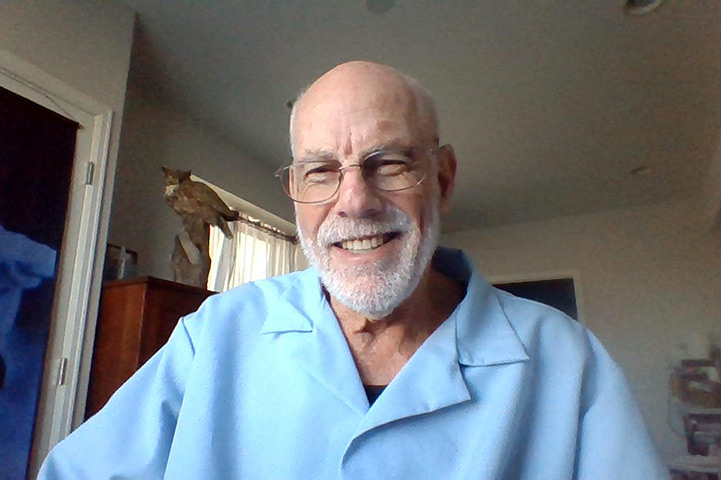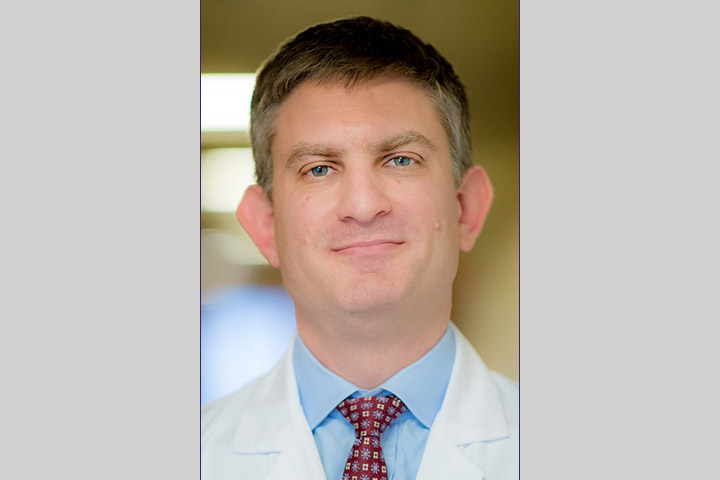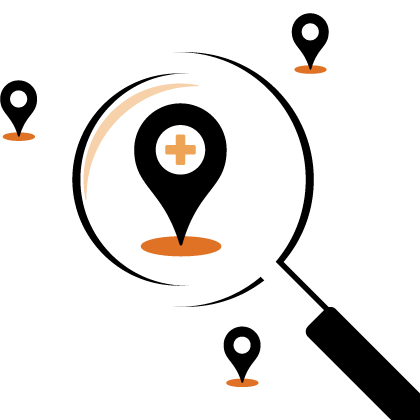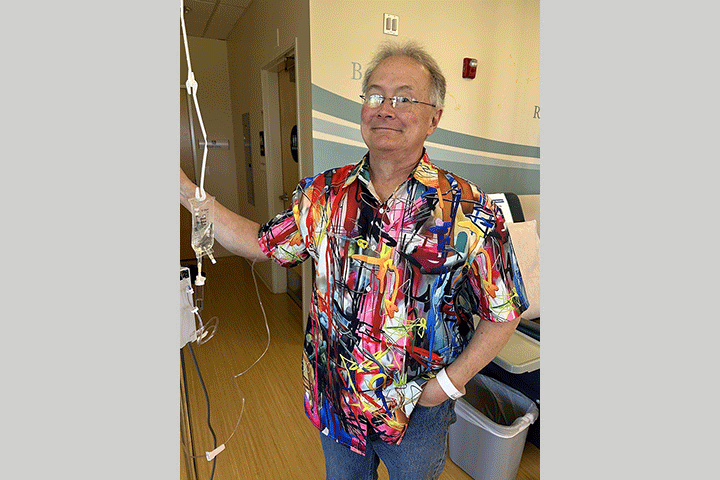Lots and Lots of Research Leads to a Better Outcome

- Blocked pancreatic and bile ducts lead to diagnosis
- Whipple procedure followed by chemotherapy
- Recurrence four years later
- Chemotherapy and a clinical trial
In February 2019 I was diagnosed with stage III pancreatic adenocarcinoma, when I was 69 years old.
I wasn’t feeling well and I noticed some peripheral neuropathy so I went to my doctor. I had a wide range of tests to cover all the bases, including an ultrasound, MRI, and PET/CT, among others. The tests showed a blocked pancreatic duct and a blocked bile duct, from a mass on my pancreas. The diagnosis: stage III pancreatic adenocarcinoma.
Treatment Journey Begins
I went to oncologist Dr. Lillian Klancar of Kaiser Permanente, in Lone Tree, Colorado, near my home in Aurora. She set out a plan for me to have a Whipple procedure followed by one course of FOLFIRINOX chemotherapy. Dr. Klancar also ordered genetic testing, but the results showed that I had no mutations.
I had my Whipple procedure the last week of February 2019. Once I recovered, I started chemotherapy with FOLFIRINOX in the beginning of May. There were specific reasons why I elected to pursue the Whipple surgery first and the chemo several months later.
Because of the degree of blockage of my bile and pancreatic ducts, and due to the impact of those blocked passages, several of my liver values were “off the charts,” my skin was turning yellow, and I had a significant degree of peripheral neuropathy. Given the choice between what was presented by surgeon Dr. Leonardo Alfaro and what was suggested by my oncologist, I elected to have Dr. Alfaro and his team proceed within a few days following the positive biopsy of my pancreas.
I had hoped that my surgery and initial treatments would mark the end of my journey with pancreatic cancer, but it didn’t exactly turn out that way. Almost four years after my initial diagnosis, I had a recurrence of pancreatic cancer in October 2022. I began a second course of FOLFIRINOX in November 2022, with only minimal side effects.
Reading and Research
I am a scientist by nature and by trade. My life’s work as a compounding chemist led me to develop solutions for biomedical therapies. I never thought I would be facing the same challenges that my technology aimed to support! It is because of my scientific background that I was compelled to do as much reading on the subject of my cancer as I could and lots and lots of research. In the end, all of my efforts paid off.
I found a clinical trial at the University of Virginia in Charlottesville that looked promising. Dr. Lawrence Lum, Dr. Tri Le, and their team of experts were running a clinical trial on EGFR immunotherapy. The official name of the trial is Phase Ib/II Treatment of Advanced Pancreatic Cancer with Anti-CD3 x Anti-EGFR-Bispecific Antibody Armed Activated T-Cells! The trial involved collecting my white blood cells to create activated T cells for the EGFR immunotherapy treatment.
While Medicare covered most of the costs for me to participate in this trial, UVA and the trial’s sponsors contributed. I have also pitched in as well. It has been worth it.
I had more abrupt side effects from this course of treatment than before, including a cytokine reaction, which happens when your immune system responds to immunotherapy drugs more aggressively than it should. The nausea was severe. But once again, it paid off.
I am now recuperating and rebuilding my stamina after completing the clinical trial. I am doing well physically and psychologically. At my last checkup, my blood data was excellent. My PET/CT data is also excellent. As a pancreatic cancer survivor, I am experiencing an excellent quality of life! I love my work as a chemist and it propels me to maintain a positive outlook.
Lessons Learned
If you’re willing and able . . . and if you’re capable of aligning yourself with doctors and researchers with whom you are compatible . . . and if you’re willing to engage in experimental trials and the legitimate efforts of those who are willing to assist you in your quest for extended life . . . then your chances for enhanced outcomes that are better than “traditional, standard of care” survival data, are relatively good!
In other words, if you’re willing to engage yourself in your own care and welfare, you may experience not only a level of control over your treatments, but you might be “gifted” with outcomes that surpass today’s statistical survival averages. Each one of us who is diagnosed with cancer experiences a unique set of impactful events. As cancer patients, we are often able to directly affect almost all aspects of this, our incredible life’s cancer journey.





